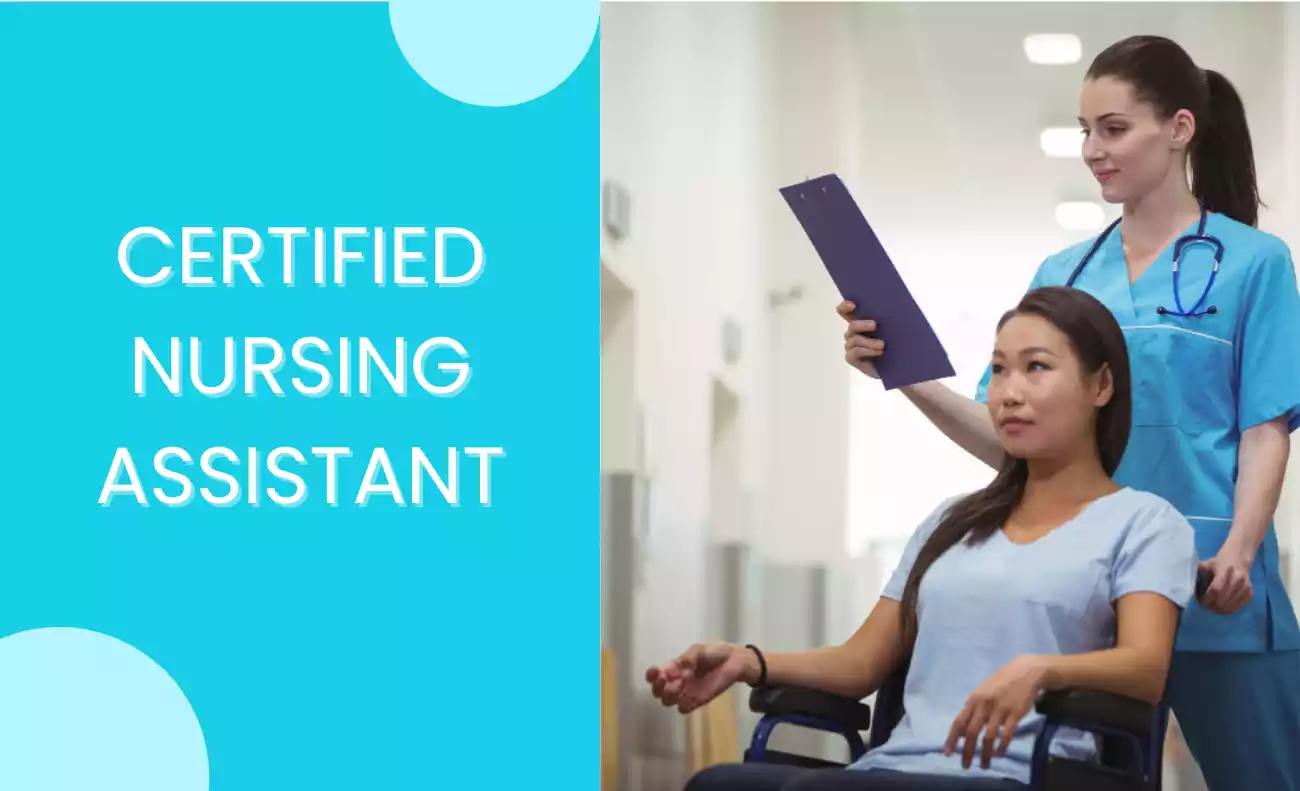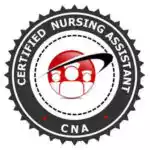Get certified by GAQM Nursing



Get Consultation
CNA Training @ Knowledge Point Institute
CNA Training at our institute will lead to an International certification, which is accredited by GAQM (Global Association of Quality Management) A certified nursing assistant, or CNA, helps patients or clients with healthcare needs under the supervision of a Registered Nurse (RN) or a Licensed Practical Nurse (LPN).
A CNA may also be known as a Nursing Assistant (NA), a Patient Care Assistant (PCA), or a State Tested Nurse Assistant (STNA). Each state also has its own scope of practice for CNA’s and its own code of ethics. Nursing assistants fulfill basic quality-of-life needs for patients of any age in residential nursing care facilities or outpatient clinics. Since nursing assistants have daily contact with patients, they are gatherers of vital information about the patients’ conditions, which they must then transmit to their supervisors. A CNA’s workload can become intense and fast-paced, but the human contact and ability to help those in medical need is a strong motivating factor. A desire to help people and compassion for patients can help a nurse’s assistant get through difficult days. Job responsibilities vary based on where you work and live. CNA’s often work in a wide variety of settings; nursing homes, hospitals, adult day care centers, personal homes and assisted living facilities all require nursing assistants to act as a helpful liaison between the RN or LPN and the patient. In many cases, CNA’s serve as the RNs or LPNs eyes and ears, and relays information between many patients and nurses.
CNA’s are typically responsible for the general care of their patients. Duties will vary, depending on the specific needs of the patient. The most common responsibilities are taking and recording vital signs such as heart rate and blood pressure; assisting them to and from their bed or chair as needed; and helping them with feeding and personal hygiene.
CNA’s may also assist doctors or nurses during medical procedures. Other job duties may include:
- Adjust positions of patients on beds or tables
- Assess physical conditions of patients to aid in diagnosis or treatment
- Operate medical equipment
- Apply bandages, dressings, or splints
- Move patients to or from treatment areas
- Prepare medical instruments or equipment for use
- Transport biological or other medical materials
- Explain technical medical information to patients
CNACourse Details of CNA
Module 1-Adult Patient Care
- Categories of Basic Human Needs
- Article of Equipment in Patient Care
- Guidelines for Bed Making
- Terminal Cleaning of the Patient Care Unit
- Practice Career Professionalism
- Apply Basic First Aid
- Practice Occupational Health and Safety Procedure
- Role and Responsibility of CNA
Module 2- Advance Principles of Patient Hygiene
- Determine Purposes for Giving a Batch
- Mouth Care
- Benefits of Back Massage
- Personal Care and the Adult Patient
Module 3- Environmental Health and the Practical Nurse
- Environmental Health and Impact on the Practice Nurse
- Patient Care Environment-Safety Measures
- Mental Health
- Anatomy and Physiology
- Medical Terminology
Module 4- Health and Safety for Healthcare Professional
- Body Mechanics
- Preventions of Transmission of Pathogens
Module 5- Positioning and Ambulance the Adult Patient
- Positioning the Adult Patient
- Common Positions used when Ambulating the Patient
- Techniques and Actions in Ambulating the Adult Patient
- Assist Transporting Patient
- Assist in Patient Mobility
Module 6- Active and Passive Range of Motion Exercise
- The Effects of Immobility
- Exercise for the Immobile Patient
Module 7- Diet Therapy
- Factors Influencing Diet
- Reasons for the Therapeutic Diet
- Standards Hospital Diets therapy
Module 8- The Physical Examination
- The Function of the Physical Examinations
- The Function of the Practical Nurse During the Physical Examination
- Positioning of Patient During the Physical Examination
- Body System Examined and Evaluated
Module 9- Specimen Collection
- Throat Cultures
- Types of Specimen Collection
Module 10- The Physical Assessment
- Physical Examination- Function and Facts
- Appearance and Behavior Examination
- Components of the Physical Examinations
- Cardiovascular, Respiratory, Gastrointestinal and Genitourinary System
- Musculoskeletal System and the Integumentary System
- Module 11- Measuring Vital Signs
- Vital Signs Measurement of a Patient
- Method for Taking Temperature, Pulse and Respiration Rate
- Vital Signs Blood Pressure Reading
- Ambulation with a Gait Belt
- Measuring Output from Urinary Bag.
